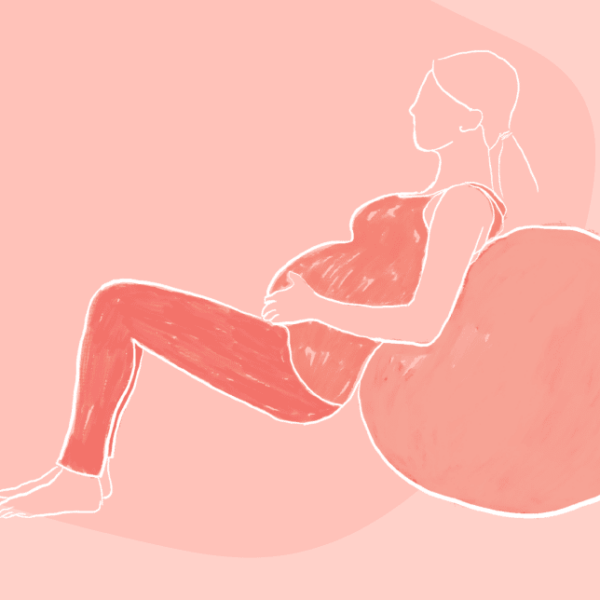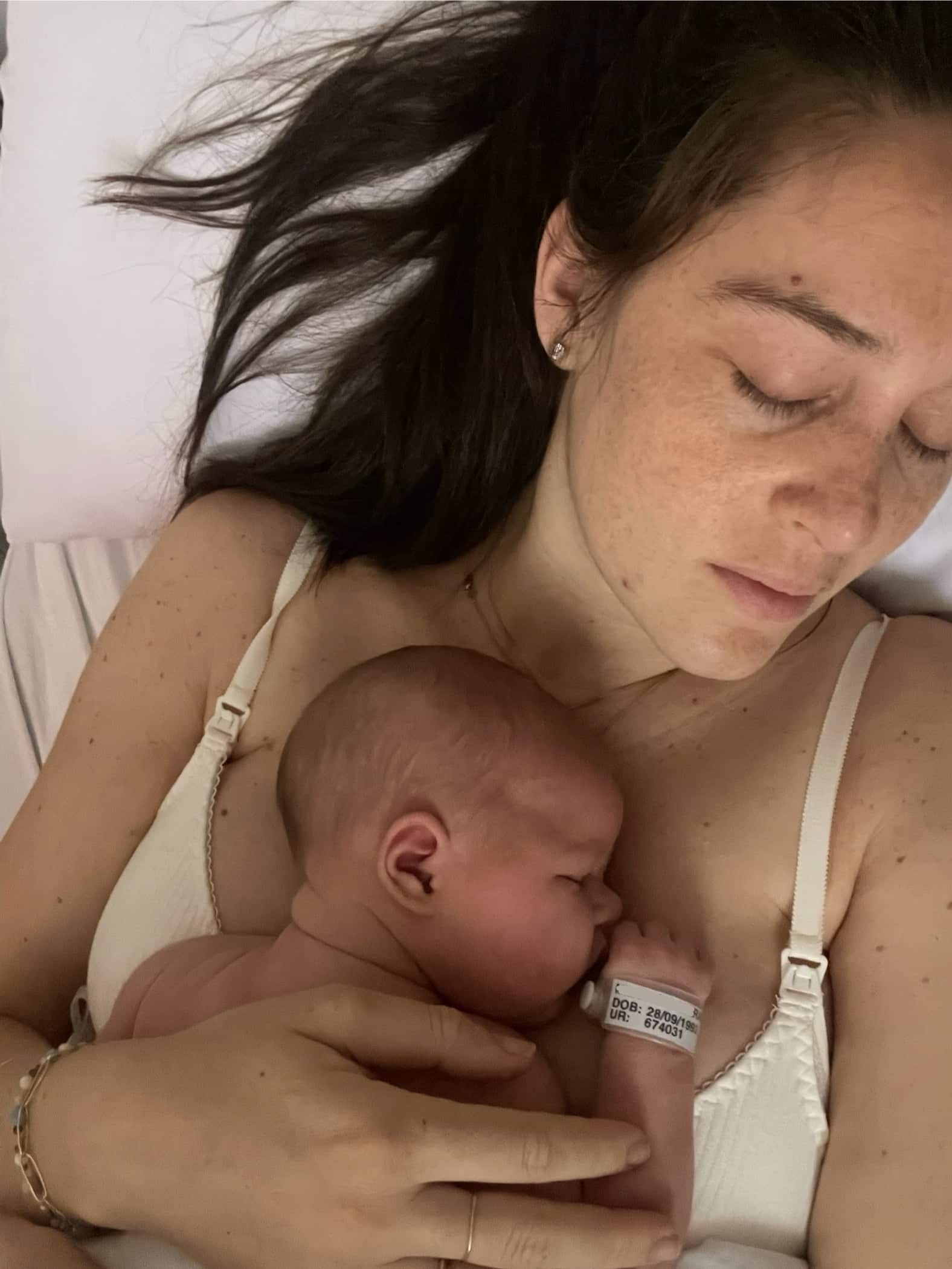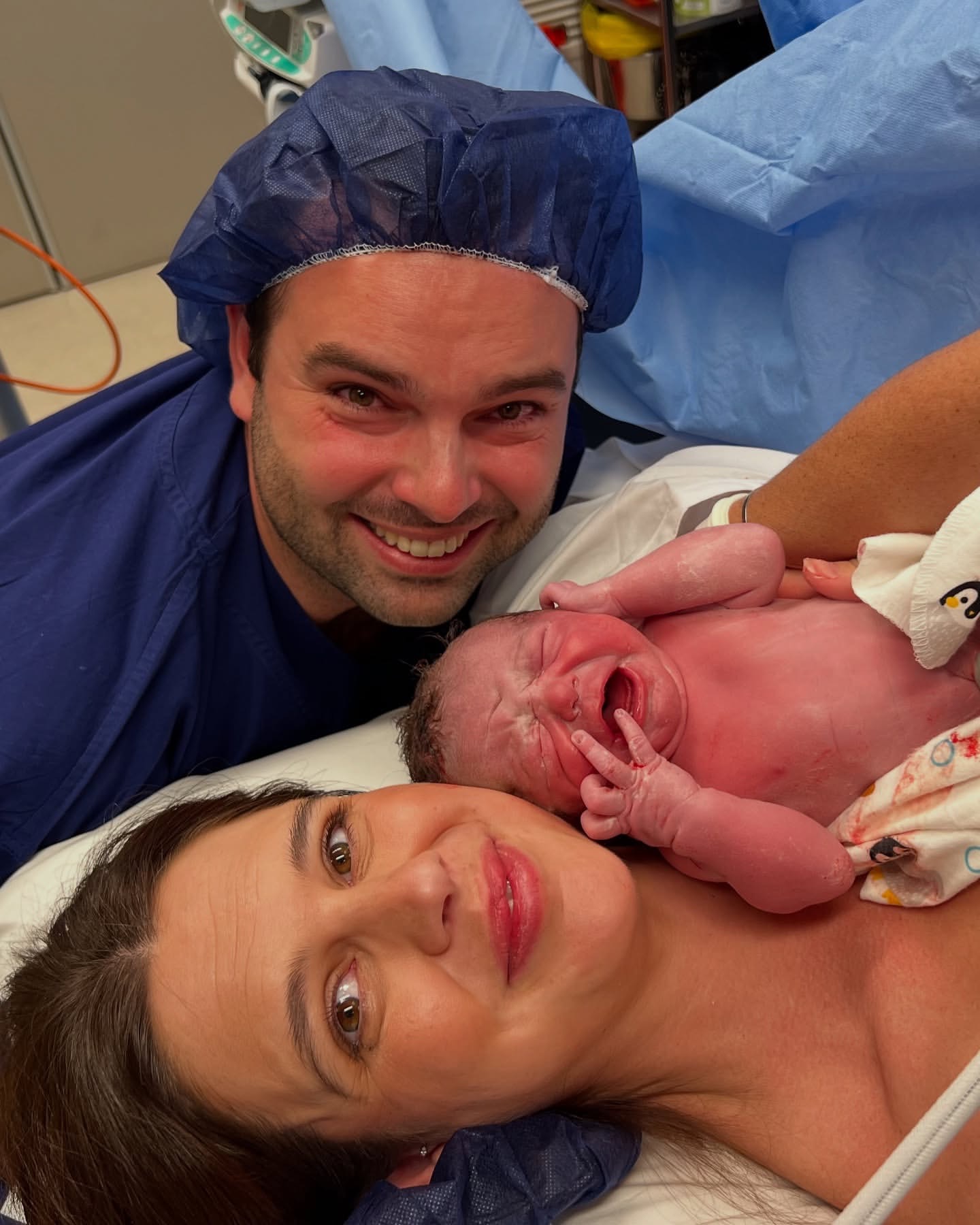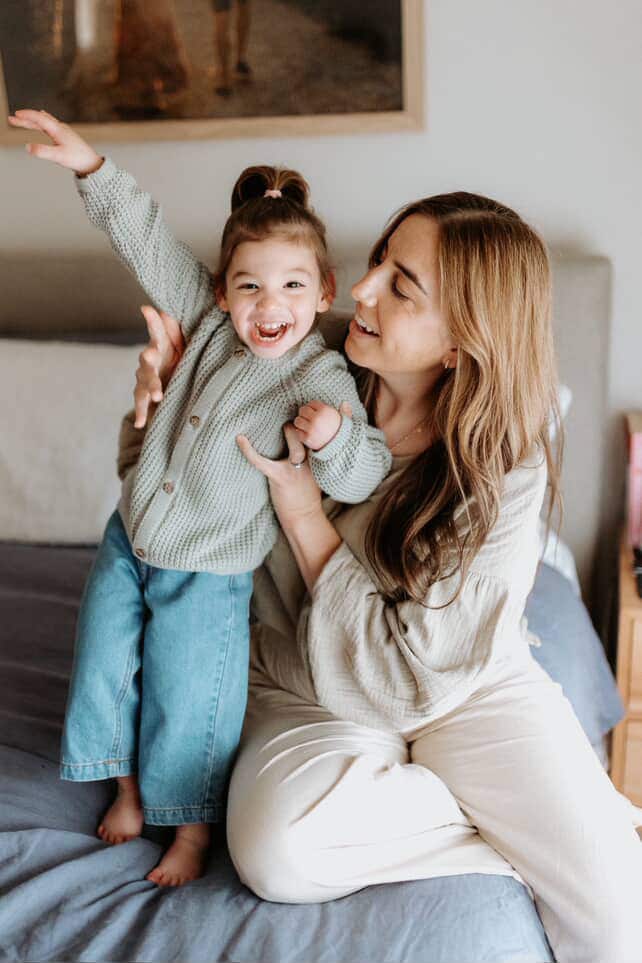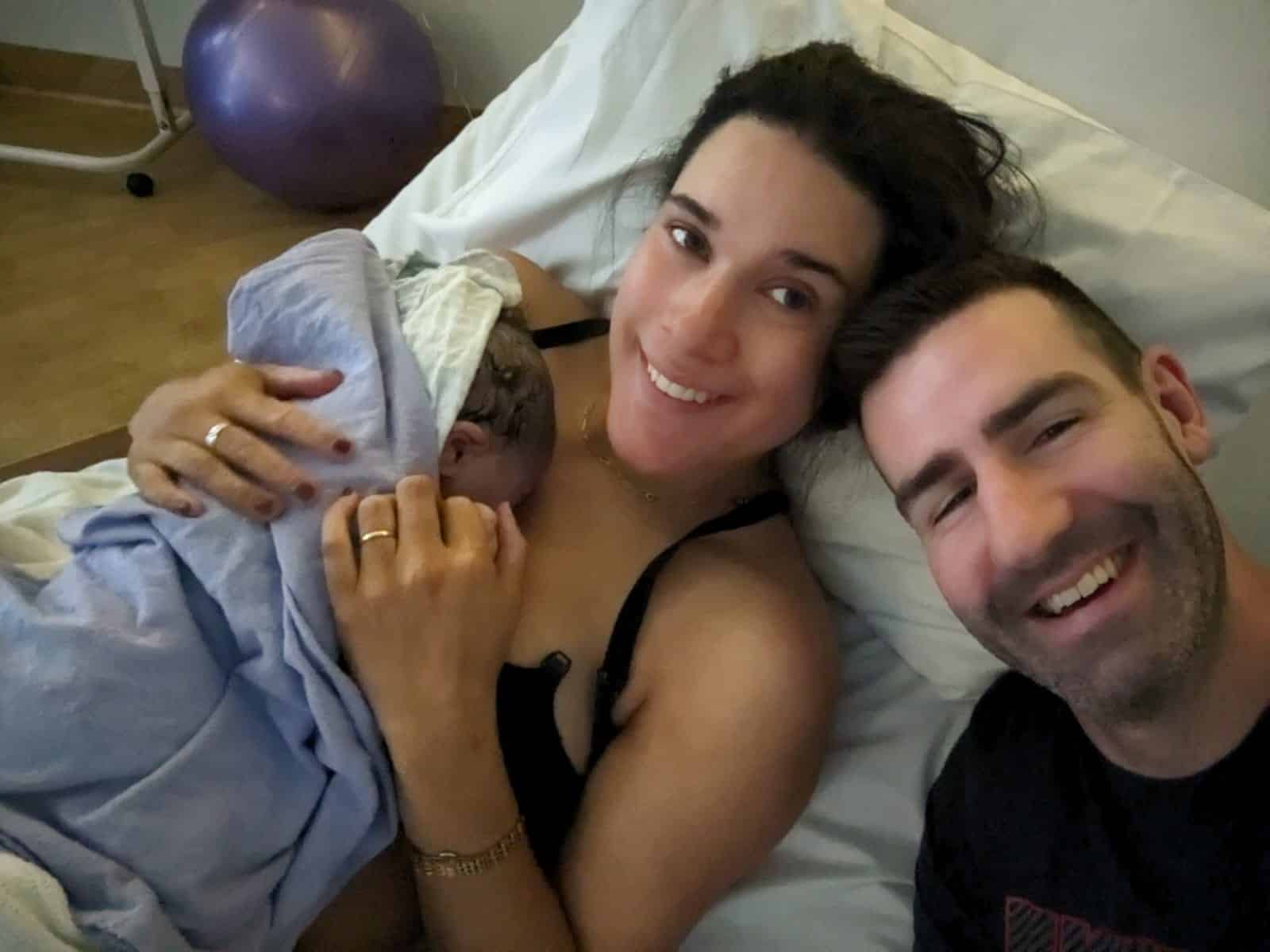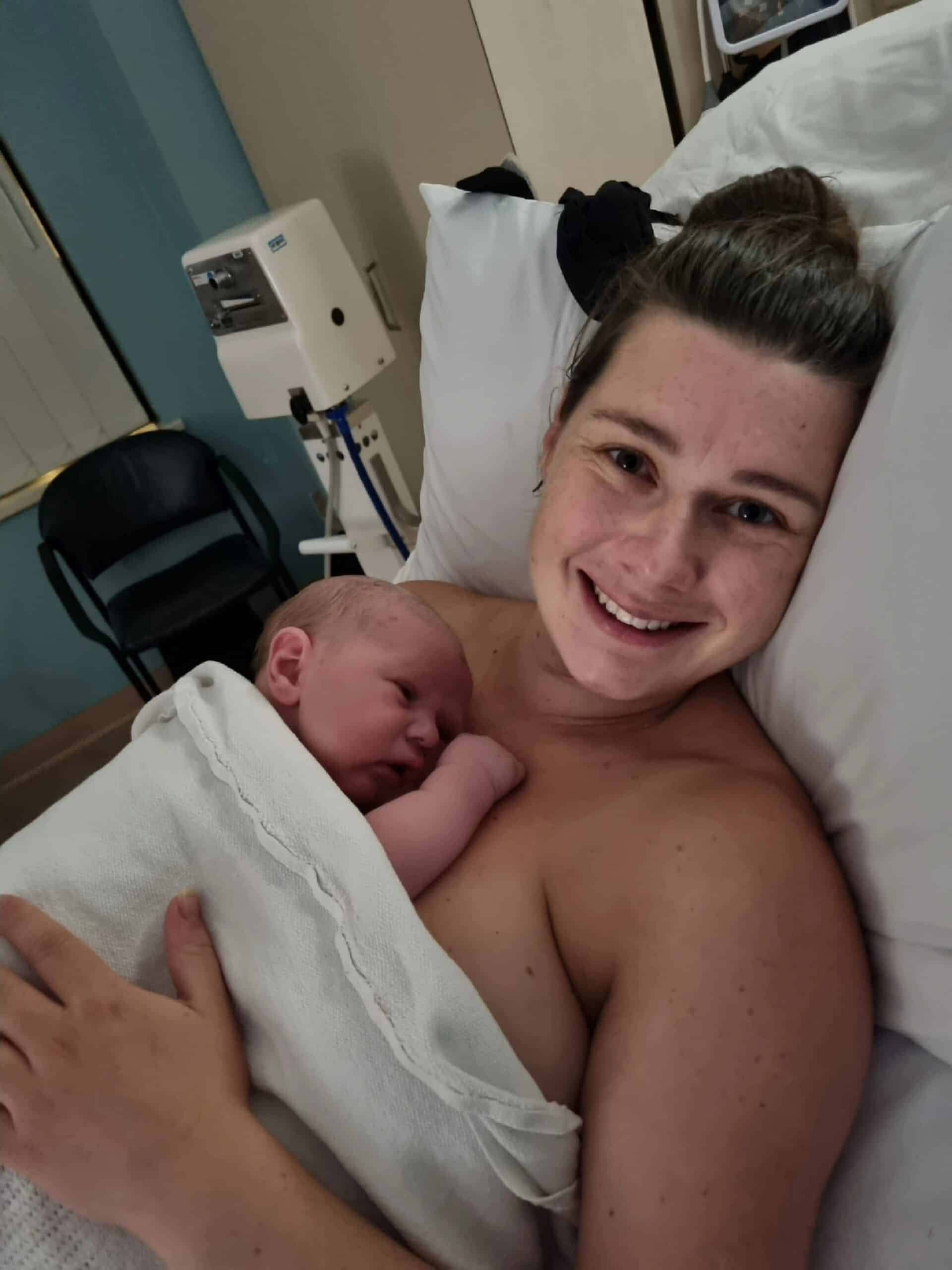Podcasts Elise
EPISODE 233
Elise
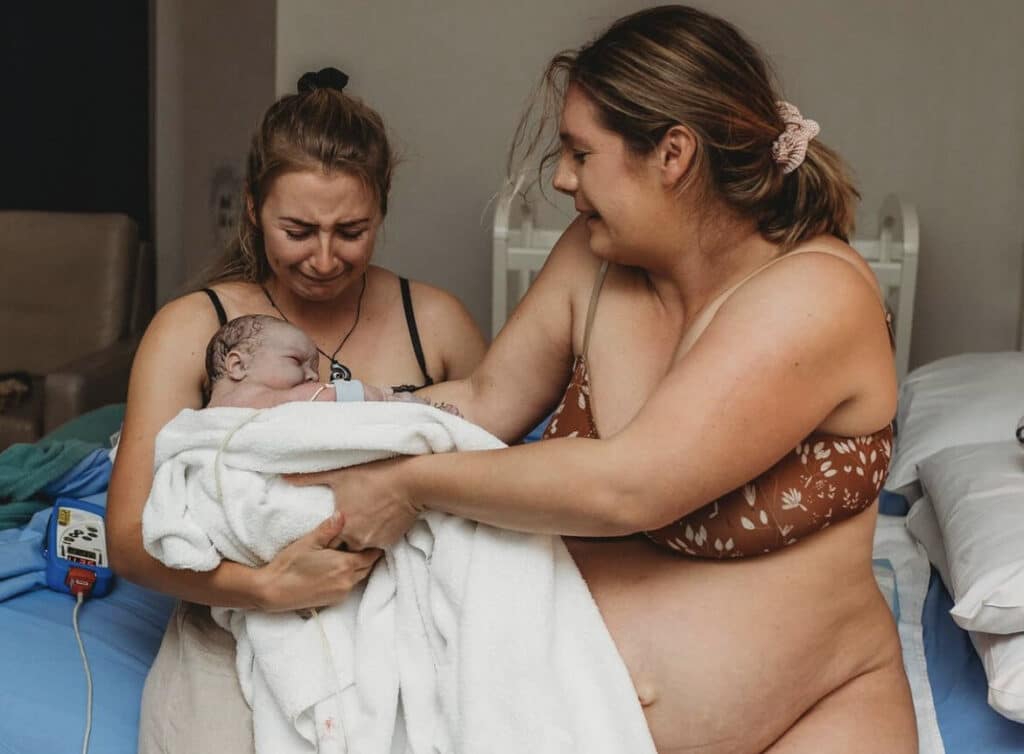
“I was 17 and watching a show on Foxtel called Julianna and Bill and they featured the surrogacy journey on there. It stuck with me, it was always in the back of the mind and once I’d had my third child, I started talking about being a surrogate with my now ex-partner. Eight months after we broke up I decided to go ahead with my surrogate journey and put a call out on instagram.”
Elise hit it off with intended parents, Danielle and Jaron and they started the lengthy process to conceive baby Archie.
“Danielle had her eldest son, Elijah, via emergency caesarean. When he was 18 months old she was diagnosed with cervical cancer. Two years after treatment she was preparing to conceive a baby when she was told that her cancer had returned and she would need a full hysterectomy. They had already gone through the IVF process and had eight embryos waiting to be transferred.”
The process from their first meeting till the day of embryo transfer took an entire year and involved legal contracts, mandatory psychology screening and counselling sessions (three before transfer, four during the pregnancy and one postpartum).
“You go through a lengthy process with a psychologist and do a personality test and mental health screening. There are a lot of possible scenarios that are discussed and you literally go through the pregnancy and birth and discuss the foods you’ll eat, your choice to stay away from drugs and alcohol, what the birth plan will look like and more serious eventualities in regards to the death of one of the parents, possible termination of the baby or the baby dying.
“Not all fertility clinics cater for surrogate pregnancies so once we had found one we got in within four weeks and started the medical screening process. I had ever done IVF before but I must admit that I wasn’t too affected by the hormones. I was bloated which is very normal but it didn’t throw me off emotionally. The practicalities of getting my bloods done before 9am while trying to also get the kids to school was the tricky part.”
The embryo transfer was done during Covid so Danielle and Jaron weren’t allowed in the room. Elise facetimed them during the procedure and they went out for lunch afterwards to discuss the intricacies. Research suggests that acupuncture 3-24hours after the embryo transfer can have great benefits so Elise scheduled a treatment for that afternoon and Danielle and Jaron were both present.
For the following 48 hours Elise was advised to rest, which she did. Between day 10 and 14 she did a pregnancy test morning and night and watched the lines get progressively darker. On the day after her official blood test she met Danielle for lunch and handed over a congratulations card.
“Our relationship definitely changed once I was pregnant. We had a strong, close relationship during meeting and transfer…but halfway through the first trimester there was a definite shift. A few things came up about my use of essential oils and getting my hair coloured. I think it was difficult for Danielle to not have control of the situation and that showed throughout the pregnancy when things weren’t dealt with well…but she was watching someone carry her baby and didn’t have control so I think that would have been really challenging. At some points it did get very difficult, especially towards the end of the pregnancy.
“It was a really similar pregnancy for me; I had no morning sickness and generally felt really well. For the first half of the pregnancy I carried a lot smaller; I think because I didn’t feel pregnant mentally or emotionally and therefore I didn’t show for a while.”
Asa single mum, Elise rallied a support team of friends and family, who were happy to chip in and be there when she needed them, both emotionally and physically. Her best-friend, Jas, stepped in as her sole birth support person and together they did their own preparations for the birth, including a hypnobirthing session.
“I had always wanted to have a homebirth but Danielle and her husband didn’t want to go down that route. However, they were on board for the family birth centre. Danielle was excited that I wanted a water birth as she laboured in the water with Elijah but ended up having an emergency caesarean so witnessing me birth in the water would have been quite healing for her.
“Towards the end there was a lot of discussion around the birth plan; we sat down to discuss how we wanted labour and birth to look. There were a couple of things around the skin-to-skin that was triggering for her; she saw it as me bonding with her baby but for me it was purely a medical benefit to help me deliver the placenta as I wanted a physiological third stage. We discussed the importance of three minutes of skin-to-skin as well as delayed cord clamping and agreed to that…it was really important for me, so I could have the benefits of the oxytocin release and help regulate the baby’s temperature. Unfortunately I was anaemic towards the end of my pregnancy so I did require the syntocin injection to deliver the placenta.”
“In surrogacy you have to have the disconnection process; to look at the baby, recognise he doesn’t look like me or my children and then pass him over. Being a surrogate you’re at a higher risk of hemorrhaging as well.
“At 36 weeks the GroupB strep screening came up; I hadn’t done it with my last two babies as I didn’t think it was a reliable test. Throughout surrogacy, I have all rights to my body and I make all medical decisions for me and the baby. I can discuss that with the intended parents but at the end of the day, it’s my choice. I knew the GroupB strep could jeopardise me having a water birth but Danielle and Jaron were insistent that I have it. I decided not to test; I put my foot down and my midwife really explained how unreliable it is and that it’s not mandatory.
“On Tuesday I went in for a midwife appointment and knew that the topic of induction would be raised. I wanted to avoid it at all costs whereas Danielle was anxious to get her baby. At that appointment I booked my induction for 42 weeks and then the midwife suggested I have a growth scan as I was measuring two weeks ahead. I know that the measurements are difficult to get right and the scan showed baby was 4.4kg. The obstetrician told me that I was excluded from the birth centre, I wasn’t allowed a water birth and there was a high risk of the baby having shoulder dystocia. He told me I could be induced that night, I could book a caesarean or they would let me wait a week to see if labour started spontaneously.
“I doubted everything they were saying but I also had in the back of my head that it wasn’t my baby, it’s not my genetics and maybe he wasn’t made to fit through my pelvis. I sat with my midwife and we had a great chat, she did a stretch for me and she encouraged me to go home, rest and have a think about it.
“The next day the Head OB agreed the scan wasn’t reliable and he cleared me to birth in the birth centre.
“On the Friday I was 40+1 and I was at the children’s athletic carnival and we got word that Perth was going into lockdown; Danielle freaked out and went to the premier’s office and everyone was coming back saying that I could only have one support person.
“I was told that I would care for the baby until discharge and I could meet Daniele and Jaron in the carpark and hand the baby over. Or I could choose to have Danielle in the room instead of Jas, my birth support person. My heart and head were in two different places; I didn’t want to take that experience away from Danielle but I also knew that I had prepared to give birth with Jas and I didn’t know how that would be for me without it. I didn’t want to put that pressure on Danielle to be my support person.”
The stress of lockdown, the unrelenting hospital rules and the rising tension between Elise and Danielle didn’t prevent labour. Elise started having light contractions in the morning and by the evening she was in active labour although still comfortable at home.
“It wasn’t until 10pm when I thought that I’d wasted everyone’s time; I was in complete denial. At 10:30pm I went to the toilet and noticed I’d had my bloody show and had a strong contraction on the toilet and then another one on the way back to the kitchen. I made it back to the lounge room and had a big contraction and looked at Jas and she said we needed to go immediately. I had another contraction in the lounge room and felt his head move down. Danielle and Jaron were following in the car behind us.
“Jas just started speeding and I hadn’t even called the midwife to tell her I was on my way. I told her that contractions were three minutes apart and she said she was 45 minutes away and told me to take my time. I hung up and then had the strongest contraction and I started to feel pressure; I rang her back and I had another big one on the phone. We got to the birth centre and the midwife had just got there and was unlocking the front door; I had a strong contraction against the car and then I walked into the birth centre, it was 10 steps at the most, and had a strong contraction against the desk and my waters broke all over the carpet. We went into the birth suite and Jas asked me where I wanted to be and I told her I wanted to be in the shower. At this point the midwife was out of the room…it was me, Jas and Danielle in the room and I started involuntarily pushing. The midwife rushed back in and on the next contraction his head was born…a total of four minutes after walking into the birth centre. The next contraction he was born and I got to have him up on my chest and the midwife sat me on the bed and my midwife arrived and they started the clock to time skin to skin but it was so hectic that I had 8-9 minutes with him till the cord stopped pulsating…that was amazing having that time. It took that whole time to gather myself and realise I’d just given birth.
“I can’t explain how amazing it was to hand him to Danielle; it made everything that had happened, all of that tension, none of it mattered, because it was all for that moment, when I handed him over.
“I had meconium in my waters so two afters after he was born he went up to the nursery and Danielle and Jaron went with him. I had a shower and had a second-degree tear so needed stitches and then Jas and I drove home, got breakfast and then I sat in bed, did some hand expressing and I was on such a high…I got an hour’s sleep in the end.
“On Wednesday Jas drove me down to their house, I got to feed him expressed breast milk and we popped some champagne. I was concerned that I’d feel something or be sad or feel some kind of attachment to him…but it wasn’t like that at all. It just felt like I was visiting a friend who had had a baby…a really beautiful experience.”
In the week following Archie’s birth, Elise was interviewed by numerous news outlets about the hospital rules regarding birth partners during (and after) lockdown. She has since connected with hundreds of women who have shared their experiences and believe that a lack of emotional and physical support during birth and the first few days postpartum has been detrimental to their birth and postpartum experience.
She admits that it’s a strange experience to be in the soft and vulnerable postpartum space without the baby and has to remind herself to go gently. She won’t be a surrogate again, for the simple fact that it was such a lengthy process and she feels that it’s time to focus on her own journey going forward.
Topics Discussed
Covid lockdown, GBS, IVF, Surrogate pregnancy, Vaginal Delivery
Connect
You can connect with Elise over at @raisingyoungloves
Categories
Related Products
-
The Birth Class
105 reviews$249.00The empowering online childbirth education program that will help you confidently prepare for birth.
Join the conversation
Sign up to get the latest updates, freebies, podcast releases straight into your inbox
@AustralianBirthStories
Follow along with us
@AustralianBirthStories
Follow along with us
@AustralianBirthStories
Follow along with us
@AustralianBirthStories
Follow along with us
@AustralianBirthStories
Follow along with us
@AustralianBirthStories
Follow along with us
@AustralianBirthStories
Follow along with us
@AustralianBirthStories
Follow along with us
@AustralianBirthStories
Follow along with us
@AustralianBirthStories
Follow along with us
@AustralianBirthStories
Follow along with us
@AustralianBirthStories
Follow along with us
